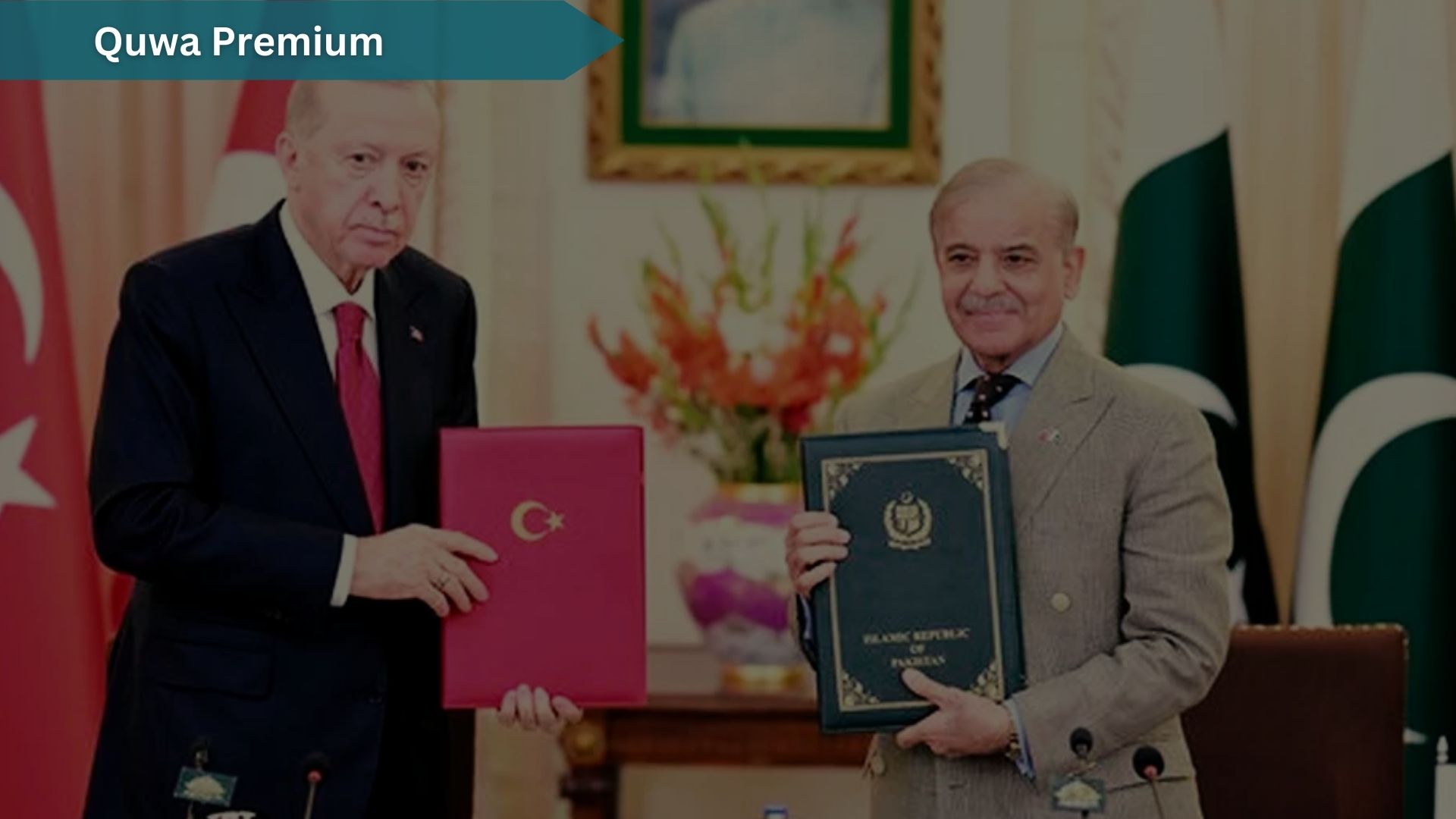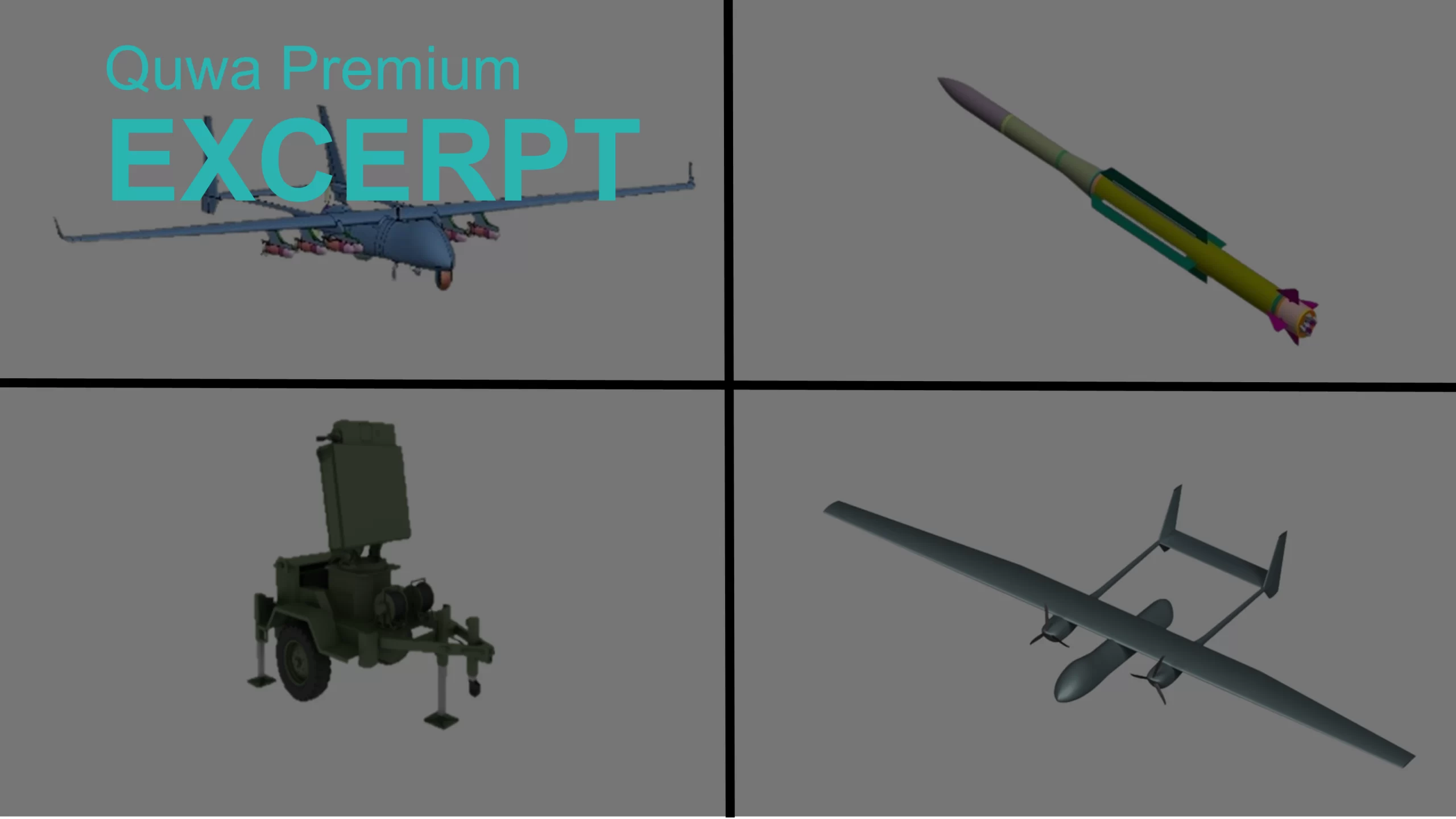9307Views

Pakistan and Türkiye Sign Agreements on EW and Other Projects Quwa Premium
On 13 February, the Government of Pakistan and the Government of Türkiye signed 24 memorandum-of-understanding (MoU) agreements in a wide range of fields, from trade to energy development to defence.
In terms of defence, the most notable agreements included an MoU for cooperating on air force-related electronic warfare (EW) as well as an MoU between Turkish Aerospace Industries (TUSAŞ) and Pakistan’s Naval Research and Development Institute (NRDI).
Overall, it is unclear how much deal-making progress – if any – the MoUs represent, but these two deals could be a reflection of several ongoing Pakistani defence programs.
Comments and Analysis
MoU on Air Force EW Technology
Through its official calendar and unofficial publication – Second to None – the Pakistan Air Force (PAF) had confirmed it was seeking a new airborne stand-off range jamming (ASOJ) aircraft. The PAF also heavily implied that its recently acquired business jet, a single Bombardier Global Express 6000, would be the platform for this ASOJ aircraft.
It is possible that the recently signed MoU involved a commitment to either advance a deal centered on the Aselsan HAVASOJ suite, which could be integrated onto the PAF’s Global Express 6000, or to develop a bespoke solution.
Alternatively, the MoU could also speak to the PAF’s wider EW efforts, which involve a number of different homegrown programs. These programs include a communications EW (C-EW) for communications intelligence (COMINT) and multi-band jamming roles, GPS denial systems, passive electronic intelligence (ELINT) sensors, and many other systems for potential use by both the PAF and the Pakistan Army (PA).
While Pakistan is currently prioritizing domestic EW projects, the likes of the National Aerospace and Science Technology Park (NASTP), Defence Science and Technology Organization (DESTO), or National Radio and Telecommunication Corporation (NRTC) could be interested in drawing on Turkish technology inputs and expertise.
Interest in Turkish inputs would not conflict with Pakistan’s original EW project goals–it would be complementary. Pakistan lacks the industrial capacity to fully source each of the necessary inputs of its defence electronic programs, be it the EW projects or even the up and coming radar projects. Turkish vendors like Aselsan, Havelsan, Meteksan, and others could provide critical inputs, such as transmit/receive modules (TRMs), for example. Likewise, Turkish and Pakistani vendors could collaborate and jointly design and develop original solutions for the Pakistani military.
For example, instead of acquiring the Aselsan HAVASOJ, the PAF’s NASTP could tap Aselsan’s assistance to develop a custom ASOJ for the PAF. In this scenario, the PAF ASOJ would combine Pakistani-designed inputs with Turkish subsystems.
End of excerpt (414/1,237 words)
Existing Quwa Premium members can log in below
Note: Logged in members may need to refresh the article page to see the article.


